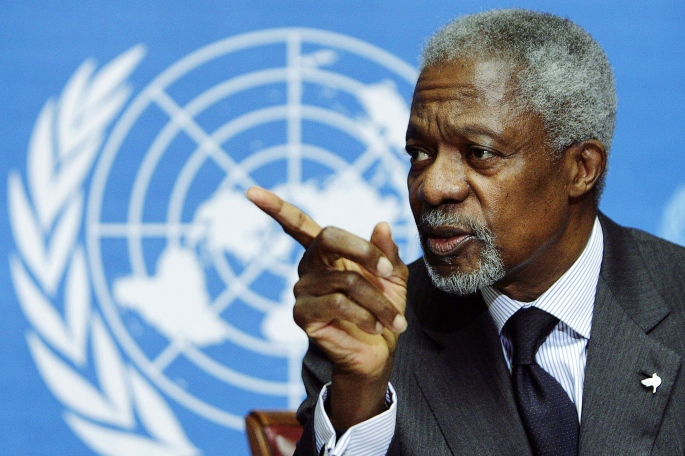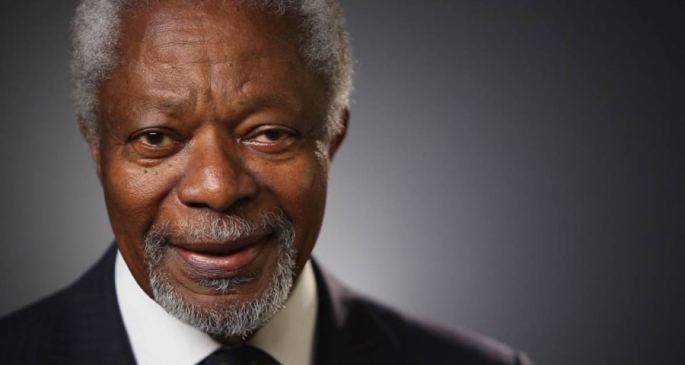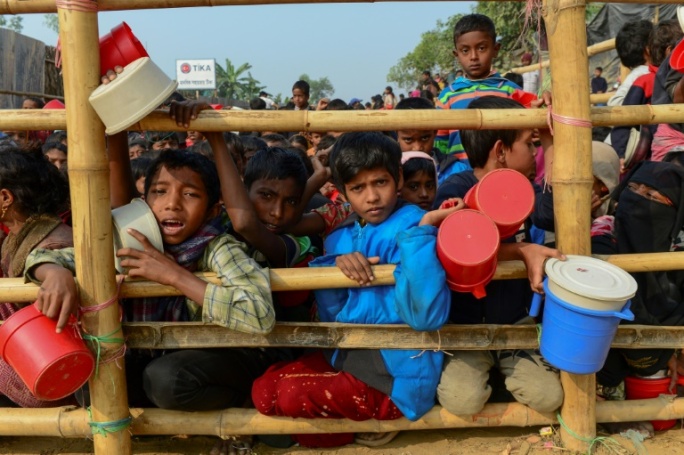Simon Lewis, Zeba Siddiqui, Clare Baldwin, Andrew R.C. Marshall
YANGON, Myanmar/COX’S BAZAR, Bangladesh (Reuters)
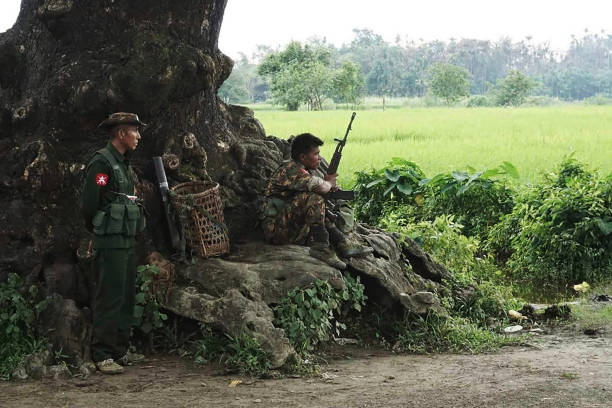
In early August last year, a young lieutenant named Kyi Nyan Lynn flew to Rakhine State, with hundreds of other Myanmar soldiers. They were about to launch a campaign that would drive hundreds of thousands of Rohingya Muslims from their homes and leave the region in flames.
First, however, Lieutenant Kyi Nyan Lynn of the 33rd Light Infantry Division did what any young man might do: He wrote a Facebook post.
“In our plane, we got to eat cake,” read the Aug. 10 post.
“Are you going to eat Bengali meat?” commented a friend. Many Burmese refer to Rohingya as “Bengali” or use the pejorative term “kalar.”
“Whatever, man,” replied the lieutenant.
“Crush the kalar, buddy,” urged another friend.
“Will do,” he replied.
Kyi Nyan Lynn was part of what some Western military analysts refer to as Myanmar’s “tip of the spear:” hundreds of battle-hardened soldiers from two light infantry divisions – the 33rd and 99th – famed for their brutal counter-insurgency campaigns against this nation’s many ethnic minorities.
When Rohingya militants launched attacks across northern Rakhine State in August last year, the 33rd and 99th spearheaded the response. Their ensuing crackdown drove 700,000 Rohingya into neighboring Bangladesh. The United Nations has said the army may have committed genocide; the United States has called the action ethnic cleansing.
Myanmar denies the allegations.
It has been widely reported that Myanmar soldiers committed mass killings and burned down Rohingya villages. But a Reuters investigation is the first comprehensive account of the precise role played by Myanmar’s 33rd and 99th light infantry divisions, how they executed the assault across northern Rakhine State, and the longstanding ties between Senior General Min Aung Hlaing, the commander in chief, and the army’s elite troops.
Reuters spoke to scores of Rohingya refugees in Bangladesh and Buddhists in Rakhine State, and conducted rare interviews with members of the Myanmar security forces, to reconstruct the actions of these two elite divisions. Interviews with Rohingya, Rakhine witnesses and policemen implicate troops from the two light infantry divisions in arson and killing.
The military is so secretive that even its official spokesmen rarely speak to the media. But Facebook is hugely popular in Myanmar, and Reuters found accounts of soldiers who posted about military life, troop movements and the crackdown in Rakhine State. The Facebook accounts of two members of the elite infantry divisions reveal a raw ethnic hatred.
Kyi Nyan Lynn, the soldier from the 33rd division, told Reuters that the army’s reaction was justified because soldiers were under attack from “Bengali terrorists.”
“They terrorized us first,” he said. “So we were given the duty to crack down on them. As we cracked down, whole villages fled.” He said he wasn’t involved in any killings or arson.
The military and government did not respond to questions from Reuters. In the past, the government has denied allegations of ethnic cleansing in Rakhine and said the security forces mounted legitimate counter-insurgency operations against Rohingya militants. The Ministry of Home Affairs, which is responsible for the police, told Reuters it rejected allegations that policemen had been involved in torching Rohingya villages.
Rakhine State was already an ethnic tinderbox before the light infantry divisions arrived. Years of violence between its two main groups – Rohingya Muslims and Rakhine Buddhists – had killed hundreds and left thousands homeless, most of them Rohingya. Attacks by Rohingya militants in 2016 had rattled Myanmar’s security forces, who blamed ordinary Rohingya for harboring “terrorists.”
The arrival of the light infantry divisions in early August 2017 marked a dramatic military build-up. Photos from that period show soldiers arriving at the airport in Sittwe, or crowded onto boats.
The government of Nobel laureate Aung San Suu Kyi said in a statement at the time that the deployment would bring “peace, stability and security.” But the influx of heavily armed combat troops with a long history of alleged human rights abuses had the opposite effect: It stoked fear and tension across a volatile region, according to Rohingya villagers.
Then, on Aug. 25, came attacks by the Arakan Rohingya Salvation Army (ARSA). The Rohingya militant group ambushed dozens of police posts and an army base in Rakhine. Already in place, the 33rd and 99th, along with other security forces, responded with a brutal campaign that effectively herded masses of Rohingya civilians north and west into Bangladesh.
Rohingya regard themselves as native to Rakhine State. But Myanmar has denied most of them citizenship, saying they are not an indigenous group, and the country’s Buddhist majority reviles them. Police and Rakhine Buddhist villagers told Reuters how they coordinated with troops from both divisions to burn down Rohingya villages, giving the residents no homes to return to.
The Reuters investigation of the light infantry divisions and their commanders comes at a time when global calls for accountability over the mass expulsion of the Rohingya are growing. The European Union and Canada on June 25 imposed sanctions on seven senior Myanmar military and police officers, including the commanders of the 33rd and 99th. The seven face asset freezes and are banned from traveling to EU countries. So far, the United States has sanctioned only one Myanmar general for abuses during the Rakhine campaign.
The new sanctions didn’t target the man with ultimate authority over the 33rd and 99th: Myanmar’s commander in chief, Min Aung Hlaing.
He is a diminutive figure who often wears round, rimless spectacles and looks more like an office clerk than the leader of one of the region’s largest standing armies. His rise through the ranks was intertwined with the bloody history of Myanmar’s light infantry divisions.
Thaung Wai Oo is a military historian who served as a colonel in the 33rd and held lesser ranks in two other light infantry divisions. When asked who had ultimate authority over the light infantry divisions, he said: “Senior General Min Aung Hlaing. That question is very easy.” While he refused to discuss the army’s operation in Rakhine, Thaung Wai Oo added that only the commander in chief can deploy the light infantry divisions in major assaults. “Final decisions come from Senior General Min Aung Hlaing.”
Earlier in his career, Min Aung Hlaing led the 44th Light Infantry Division. In 2009, as a special operations commander, he oversaw the deployment of the 33rd in a campaign to drive armed rebels from an enclave of eastern Myanmar; some 37,000 people fled across the border into China. He became commander in chief in 2011.
Min Aung Hlaing was the public face of the crackdown in Rakhine State. Days before the 33rd and 99th were deployed, he held a widely publicized security meeting with ethnic Rakhine leaders. In the midst of the crackdown, on Sept. 1, he said: “The Bengali problem was a long-standing one which has become an unfinished job.” And on Sept. 19 he visited Sittwe, the state capital, and – according to his Facebook page – he received a detailed briefing from senior officers on the progress of the military operation in Rakhine.
The military did not respond to Reuters request for comment from Min Aung Hlaing.
Past military offensives waged by the 33rd and 99th have gone largely unnoticed by the world. But the impact of their Rakhine crackdown has been far-reaching.
It created an ongoing refugee emergency that Bangladesh, one of the world’s poorest countries, is ill-equipped to deal with. And it damaged Suu Kyi’s global image as a democracy icon. Human rights activists accuse her of not standing up more forcibly for the long-persecuted Rohingya, then supporting the military’s version of events. Her office had no comment.
In December, the international aid group Médecins Sans Frontières estimated that at least 6,700 Rohingya were killed in the first month of the crackdown alone.
The military had no comment on the death toll in Rakhine or on the specific allegations of abuses described in this article. In November, it said that 13 members of the security forces were killed in the conflict, and it recovered the bodies of 376 ARSA militants between Aug. 25 and Sept. 5, when the offensive officially ended.
“IF THEY’RE BENGALI, THEY’LL BE KILLED”
Three photos distributed by Myanmar Pressphoto Agency show soldiers arriving at the airport in Sittwe on Aug. 10. Two of the photos also show military planes: a Chinese-made Shaanxi Y-8 capable of transporting more than 100 soldiers; and a smaller, French-made turboprop. In the third photo, at least 30 soldiers are lined up on the tarmac in front of a fleet of army trucks. One soldier’s shoulder clearly bears the badge of the 33rd.
Flying to Rakhine, although not necessarily on one of these planes, was Lieutenant Kyi Nyan Lynn of the 33rd Light Infantry Division. He identified himself on Facebook as Mai Naung Lynn. His homepage address, and a photo he posts of his wedding, name him as Kyi Nyan Lynn. He is 24.
On Aug. 11, he posted a smirking emoji on Facebook. “If they’re Bengali,” he assured his friends, “they’ll be killed.”
The soldiers in the photos taken at Sittwe airport are, by the standards of the Myanmar military, well-equipped and heavily armed. They wear helmets and flak jackets, and carry rifles and mortars.
Photos published in August 2017 on Facebook show troops and trucks packed into a navy landing craft. The use of aircraft and boats to transport the soldiers showed that a joint operation by Myanmar’s airforce, navy and army was underway, said three analysts who have studied the military’s command structure, and two experts in international criminal law.
A joint operation and the deployment of troops from outside the region “indicate central command at the highest levels,” said one of the experts, Tyler Giannini, co-director of the International Human Rights Clinic at Harvard Law School.
The navy craft landed in Rathedaung, one of the three townships that make up northern Rakhine State. From here, both light infantry divisions headed north, according to more than 40 Rohingya interviewees who described multiple sightings. The 33rd advanced mainly on the east side of the Mayu mountains, a jungle-clad range that roughly divides Rathedaung and Maungdaw townships. The 99th moved on the west side.
The interviews with Rohingya placed the 33rd or 99th in at least 22 village tracts in northern Rakhine State.
The deployments rattled the region. On Aug. 14, a Rohingya religious scholar named Abdul Zalil counted about 350 soldiers marching through his village in Tha Win Chaung. “They walked along the main road and everyone saw them,” he said.
The 33rd and 99th also announced their arrival in a series of meetings that Rohingya attendees said left them anxious and fearful. Officers from the two divisions called at least 14 such meetings, according to Rohingya leaders who attended. They said leaders of the local Rakhine community sometimes came, too.
The meetings, held in venues such as schools and police stations, delivered similar messages. The officers said they had come to “clear” the area and root out “terrorists” and “criminals.” They accused Rohingya of harboring “bad people” and threatened to burn down villages and shoot anyone they deemed suspicious, according to Rohingya who were present.
Reuters interviewed three Rohingya who said they attended a meeting in mid-August called by a 99th commander in Taungpyoletwea, on Myanmar’s border with Bangladesh. Arif, a local elder who was present, said the commander was guarded by dozens of soldiers. “If we find any terrorists,” Arif recalled him saying, “we’ll burn your village to ashes. Your future generations won’t last.”
On the other side of the Mayu mountains, in Chut Pyin village, Abdul Baser and other Rohingya leaders attended a meeting called by a 33rd commander. He told them he had recently been fighting another ethnic war in northern Myanmar.
“Before we came here, we were on the Kachin State frontline,” the commander said, according to Abdul Baser. “We behaved very badly in Kachin – and they’re citizens. You’re not citizens, so you can only imagine how we’ll be.”
Many Rohingya interviewees referred to the troops of the 33rd and 99th as “new soldiers,” to differentiate them from those already garrisoned in the region. Over the decades, they said, Rohingya had bribed or negotiated with local military and police, thereby maintaining an edgy status quo. But Noor Alom, a Rohingya building contractor, said the “new soldiers” were different.
Alom was building a government school in Ah Htet Nan Yar, a village in Rathedaung. When hundreds of soldiers arrived on a rainy morning in mid-August, his workers fled. Alom, who had good relations with the local battalion, said he stood his ground.
Minutes later, he said, he was curled in a fetal position as soldiers from the 33rd kicked and beat him, and demanded the truth about the “terrorists” hiding in his village. Alom, who is now in a refugee camp in Bangladesh, said one soldier told him: “The central government sent us specially to kill you Bengali people.”
The assault on Noor Alom couldn’t be independently confirmed. But Thura San Lwin, chief of the paramilitary police in Rakhine at the time, told Reuters that the 33rd and 99th had been sent to villages including Ah Htet Nan Yar.
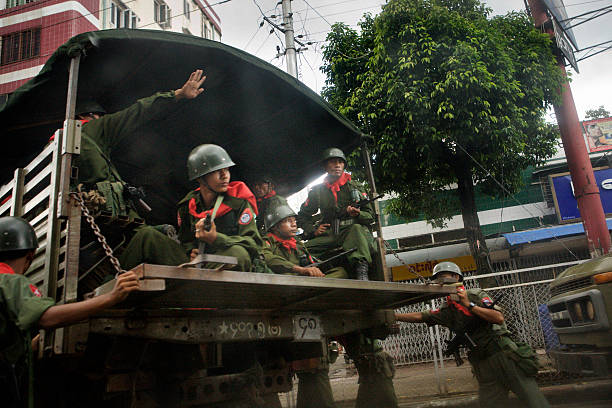
ARSA ATTACKS, THE CRACKDOWN BEGINS
In the early hours of Aug. 25, groups of Rohingya, led or mobilized by the militant group ARSA, launched attacks on 30 police posts and an army base. The attacks killed 10 police, one soldier and one immigration officer, said Suu Kyi’s office in a statement the same day.
In Myin Hlut, a collection of villages on Maungdaw’s coast, a Rohingya mob attacked a police post with sticks, stones, arrows and Molotov cocktails, said a police officer who repelled the attack with nine other officers. He asked Reuters to withhold his name.
Two police were killed and one injured while repelling the mob, said the officer. “When they tried to break the gate, we started shooting them,” he said. “They dragged away the men who were hit.”
ARSA claimed responsibility on its Twitter account on Aug. 25 for multiple attacks, without mentioning Myin Hlut. The Myanmar government and Amnesty International said ARSA was behind the killing of dozens of Hindu residents from another remote Rakhine village. ARSA denied this. The group did not respond to questions from Reuters.
Reading early reports of such attacks was Sai Sitt Thway Aung, a soldier with the 99th. At that time, his Facebook posts suggest, he was still at the 99th’s hometown of Meiktila in central Myanmar.
“Please send us quickly to Rakhine where the terrorists are,” he wrote. “I want to fight, please. I cannot control my patriotic urge for revenge.”
His wish was granted. He later posted a photo on his account that he said showed him en route to northern Rakhine.
“The debt of people’s blood I will collect with much interest,” he wrote on Aug. 27 in a warning to “Muslim dogs.” More than a thousand people “liked” the post. “Kill those fucking people,” commented one.
Sai Sitt Thway Aung told Reuters that “Muslim dogs” referred only to ARSA militants, and that he had “many Muslim friends.” He also said he hadn’t shot or killed anyone while in Rakhine State.
By this time, his counterpart in the 33rd, Kyi Nyan Lynn, was already in action, according to his Facebook posts. “I didn’t get to sleep again because I had to go and help surround a kalar village,” wrote the lieutenant on Aug. 26. “But when we reached there, the kalar were all gone.”
He then recounted a grueling hike through the mountains to the village of Inn Din, on Maungdaw’s coast. There, he ate well and called his wife. “Relaxing peacefully,” he wrote.
For the Rohingya residents of Inn Din, the village was now a war zone. They had already begun fleeing for nearby forests. Within days of the 33rd’s arrival, soldiers and police joined with local Rakhine Buddhists to burn down most Rohingya houses in Inn Din, Reuters reported in February.
On Sept. 1, soldiers detained 10 Rohingya men and boys, Reuters reported in February. The next day, with the help of Rakhine villagers, they shot or hacked to death the Rohingya men, then dumped their bodies in a shallow grave.
Like Lieutenant Kyi Nyan Lynn, some of the soldiers in Inn Din hailed from the 11th battalion of the 33rd light infantry division, according to two policemen. “I wasn’t involved in the Inn Din killing,” Kyi Nyan Lynn told Reuters. “I absolutely haven’t committed any other killings, either.”
Two Reuters reporters were arrested in December after the police learned they had been reporting on the Inn Din massacre. The following month, the military admitted its soldiers had taken part in the killings, and said seven soldiers had been given 10-year jail sentences. The military didn’t identify their names, ranks or divisions.
The Reuters reporters, Wa Lone and Kyaw Soe Oo, remain behind bars, accused of breaching the Official Secrets Act. If charged, they face jail sentences of up to 14 years.
On Aug. 30, in north Maungdaw, soldiers also tore through the village of Min Gyi, also known as Tula Toli, according to Rohingya residents who are now in the camps in Bangladesh. Investigators with Human Rights Watch say a massacre took place at Tula Toli. Soldiers shot fleeing Rohingya and rounded up hundreds of others, said Human Rights Watch in a report. The soldiers then “systematically murdered the men over the course of several hours,” before killing and raping many Rohingya women and children, it said.
Reuters interviews with two Rakhine villagers place the 99th in the village. Interviews with Rohingya survivors implicate the division’s soldiers in atrocities there.
The Rakhine population saw the 99th as saviors, Maung Hla Sein, a local resident, told Reuters. “If they hadn’t arrived, the kalars would have killed everyone,” he said. Maung Hla Sein said he heard gunfire and explosions coming from Tula Toli but didn’t see what happened there.
Aung Kyaw Thein, the ethnic Rakhine chairman of the village, said more than 100 soldiers from the 99th conducted a “clearance operation” in Tula Toli. “I don’t know exactly how many Muslims were killed because we didn’t dare leave our village,” he told Reuters in November. He also credited the 99th with protecting Rakhine villagers.
Reuters spoke to three Rohingya women who said Myanmar soldiers wearing 99th badges on their arms had raped them at Tula Toli.
A woman surnamed Begum was one of the three. She says soldiers took her to a house in Tula Toli with 11 other women and girls, including her little sister. She said six soldiers with 99th badges pushed her into a room full of bodies. Then one of the soldiers slit her sister’s throat. “I could not bear to see it so I turned my face away,” she said, sobbing and trembling as she spoke.
Begum said she was kicked and beaten till she blacked out. When she came to, it was dark. Her back and legs were in flames and her head throbbed. Around 10 other women lay burning and unconscious around her as she crawled out.
Begum’s account couldn’t be independently confirmed. Her body bore burn marks when Reuters interviewed her. Rakhine residents told Reuters in November that soldiers from the 99th were still in Tula Toli, and that all the Rohingya homes had been razed.
“The kalar are quiet now,” Sai Sitt Thway Aung, the 99th soldier, posted on his Facebook page on Sept. 5. “Kalar villages have burned.” He told Reuters he was in northern Maungdaw at the time, but didn’t commit arson. He said Rohingya burned their own homes and then blamed the military.
Sept. 5 was the day Myanmar’s military campaign in Rakhine officially ended, Aung San Suu Kyi said in a speech two weeks later. Yet arson attacks on Rohingya villages continued for weeks, satellite images show. During that period Reuters reporters in Bangladesh saw smoke rising daily from the Myanmar side of the border.
According to one witness – the police officer who survived the attack on his base in Myin Hlut – the 33rd and 99th were among those responsible. After the attack, the police officer told Reuters, he was ordered to join soldiers from the 33rd and 99th on “clearance operations” in now-deserted Rohingya villages. Part of his account was reported by Reuters in February.
Each operation involved five to seven police and at least 20 soldiers, he said. Police surrounded the Rohingya houses while soldiers searched and then set them alight. The houses had leaf roofs and bamboo walls, and burned easily. “There was no need to use fuel,” he said. The officer said the houses were burned “mainly for security reasons,” to stop the Rohingya from returning and launching fresh attacks.
The military has denied burning houses in Rakhine and says Rohingya militants set the homes alight. The police officer described how the 33rd and 99th used arson routinely and systematically. “We’d go to a village and burn it down,” he said. “The next day we’d go to another village. And in the evening we’d go to another village.”
A HERO’S WELCOME
The Myanmar government has banned journalists and other foreign observers, including U.N. investigators, from freely visiting most of northern Rakhine State.
What happened in Rakhine is an “internal issue,” Min Aung Hlaing told U.N. Security Council envoys who visited him in Naypyitaw in April, according to an account of the meeting published on his official Facebook page. “Bengalis will never say that they arrive there happily,” he said, referring to the mass exodus of Rohingya. “They will get sympathy and rights only if they say that they face a lot of hardships and persecution.”
Military observers note that some officers involved in the Rakhine crackdown were recently removed from active service.
One of them was Lieutenant General Aung Kyaw Zaw. As chief of the special operations bureau for western Myanmar, he would have coordinated the Rakhine operation from army headquarters in Naypyitaw, according to veteran observers of the Myanmar military. Aung Kyaw Zaw, who was a commander of the 33rd earlier in his career, was “given permission to resign” in May, according to the military.
Major General Maung Maung Soe, who led the Western Command, was removed from the military on June 25, the army said. Maung Maung Soe was sanctioned in December by the United States. The military didn’t respond to a Reuters request for comment from Aung Kyaw Zaw and Maung Maung Soe.
Brigadier General Than Oo, commander of the 99th, and Brigadier General Aung Aung, commander of the 33rd, were both named on the sanctions lists released June 25 by the EU and Canada.
Myanmar’s soldiers have received a warm welcome in the towns of the Bamar heartland where most of the light infantry divisions are based.
Photos of military homecomings can be found on many Facebook accounts. These show soldiers from the 33rd and 99th marching through garrison towns, where people give them flowers or laurel leaves – symbols of victory and good luck.
On Dec. 6, Sai Sitt Thway Aung posts photos of himself and other 99th soldiers marching through homecoming crowds in Meiktila. He is garlanded with flowers and smiling.
That same day, he also posts a selfie, in uniform. A friend weighs in with a comment: “I’m proud of you for kicking out the kalar dogs.”
